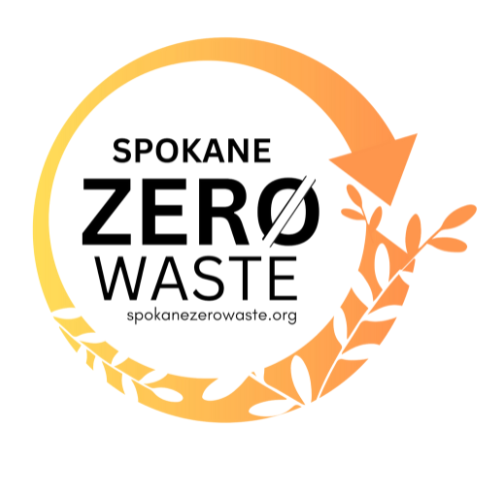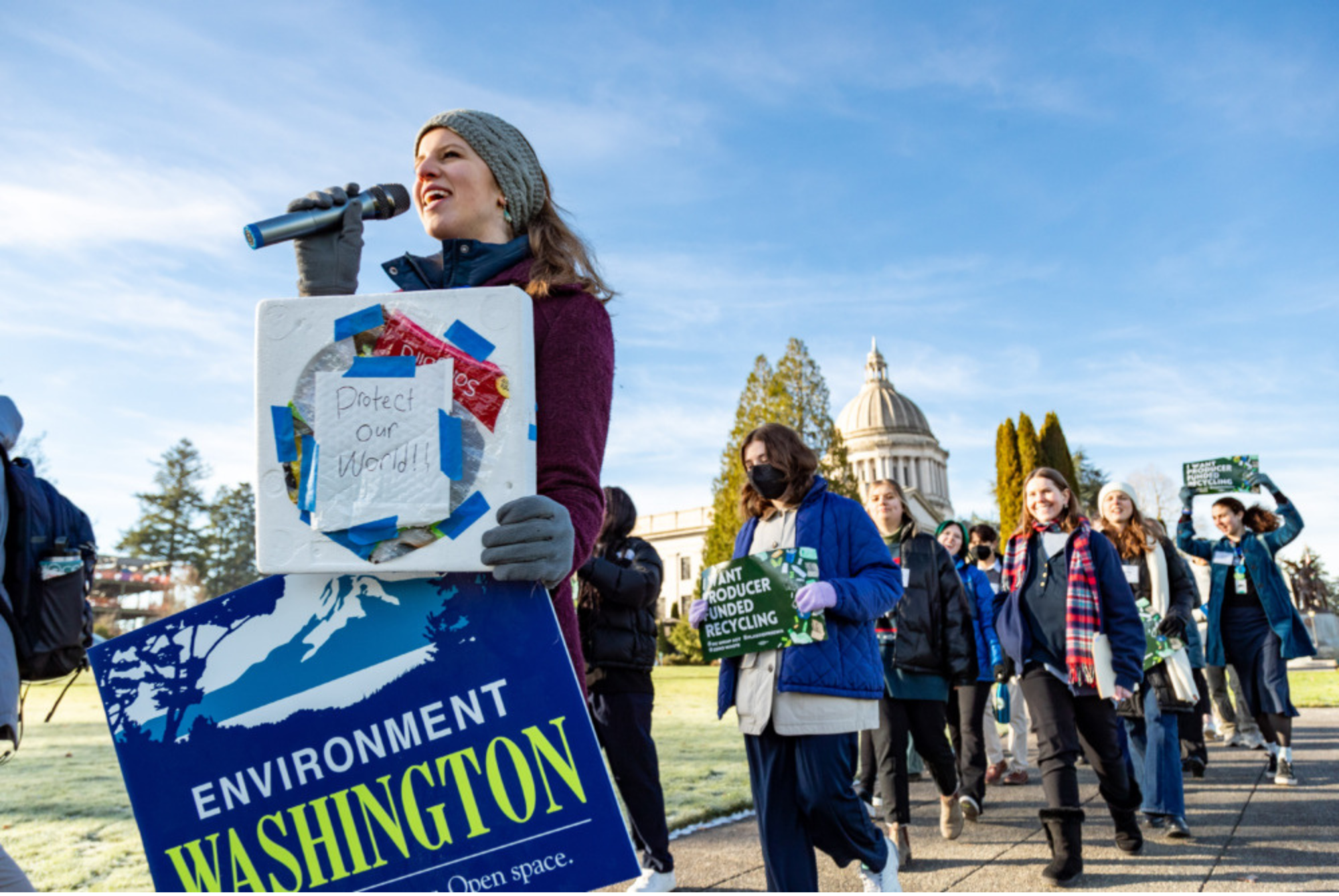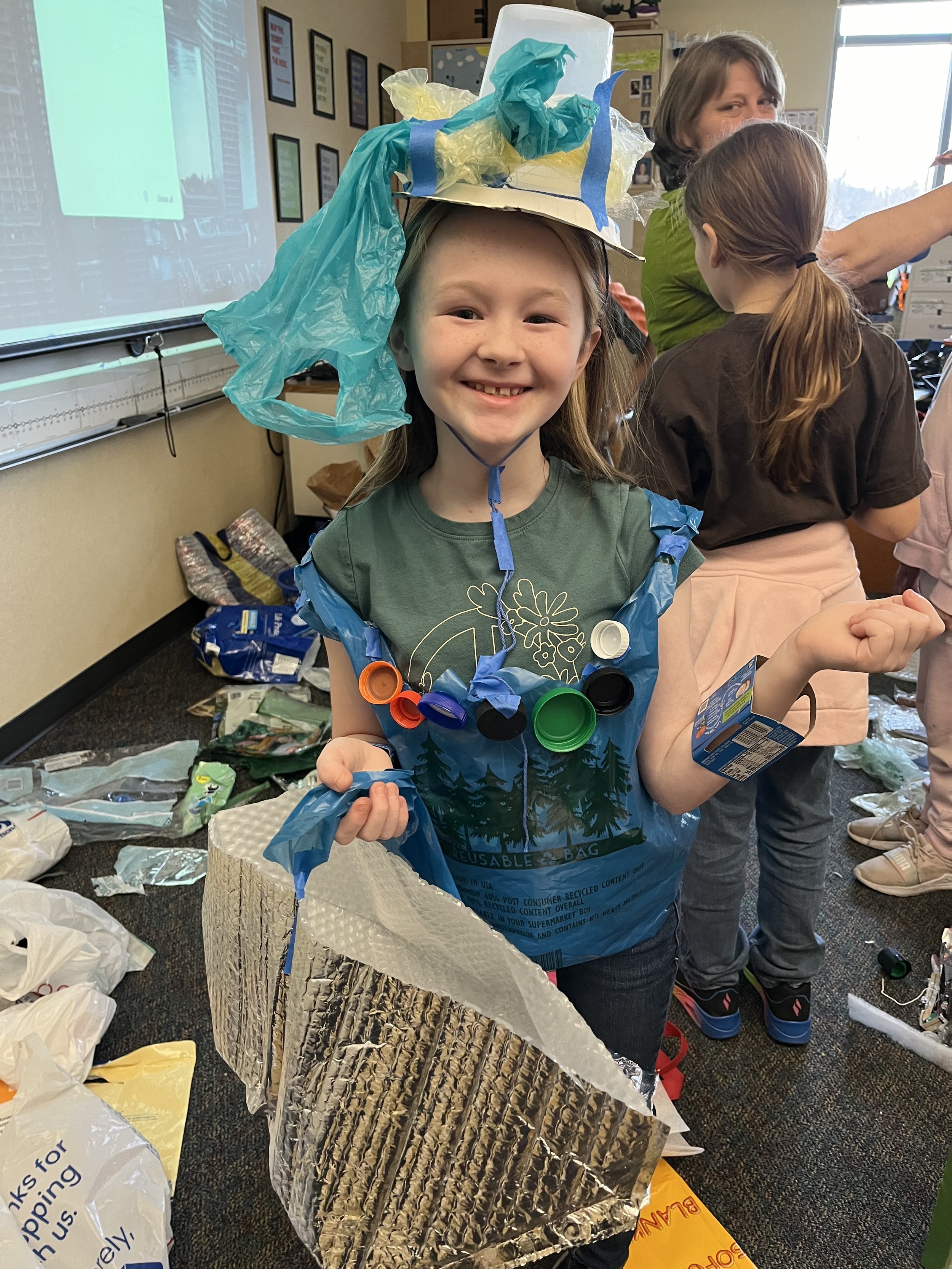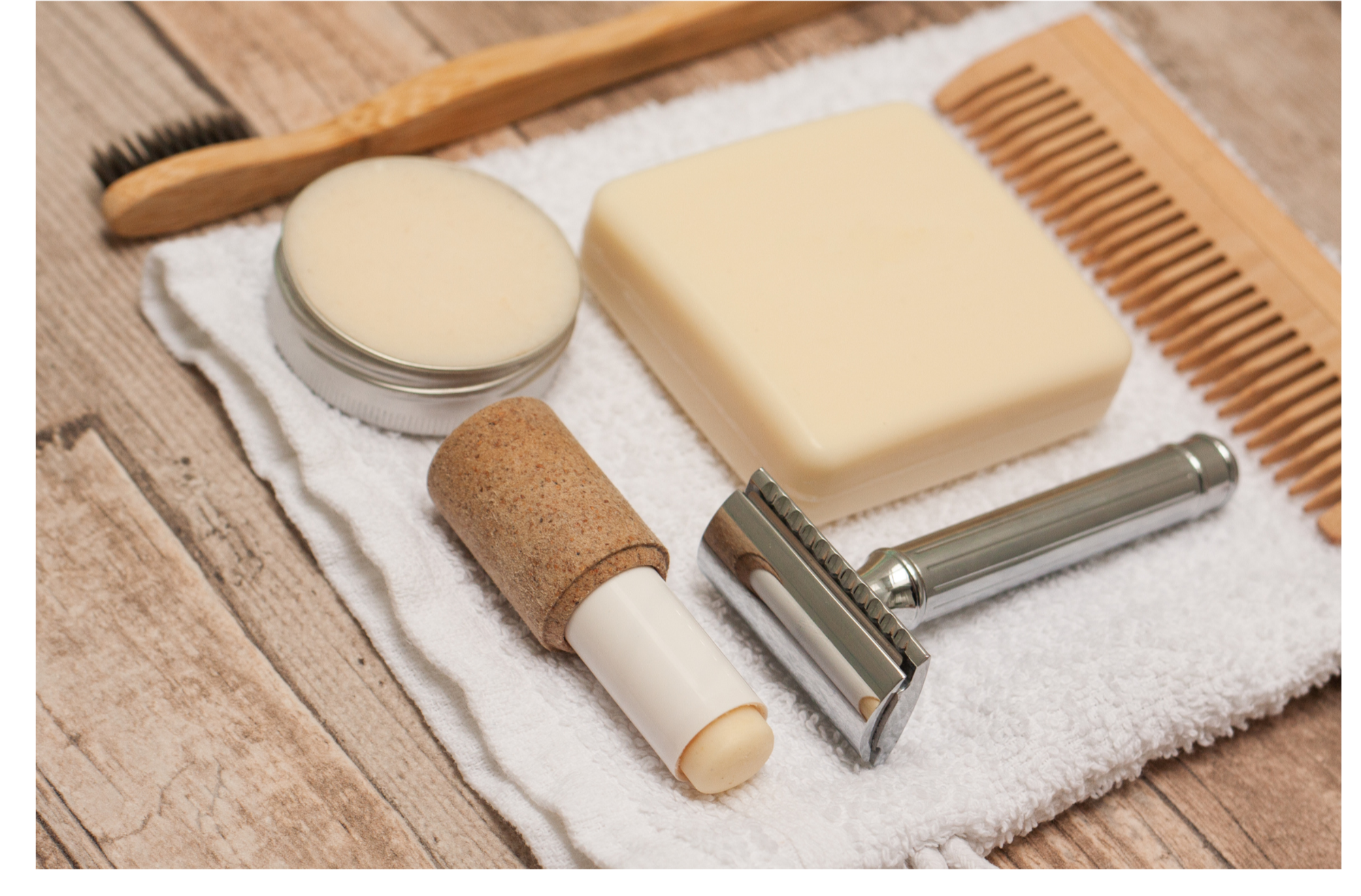Why we can’t quite get recycling right
It’s confusing, it’s contested, it’s talked about constantly. While it’s ever changing one thing we can say for sure is, we cannot recycle our way out of the literal mess we’re in, which is why Spokane Zero Waste and other groups are working to promote a circular economy where resources that have already been extracted and transformed are used again and again and again.
Examples of a circular economy are clothing rental programs such as the one being developed and tested by Ralph Lauren. Consignment shops such as Spokane’s new Buffalo Exchange, Fringe and Fray and Echo Boutique are also involved in circularity as are online thrift stores such as Spokane Goodwill and ThreadUP.
Think of circularity like that game where a group works to keep the ball in the air. When we work together and continually bring in new players that ball can stay aloft for a looooong time.
Imagine creating this type of circularity in other systems! For a deeper dive into circularity, including some case studies, check out the Ellen Macarthur Foundation.
Why Circularity is SO Important
According to the Columbia University Climate School, in 1960, the average American generated 2.7 pounds of garbage per day and on average only 4% of it was plastic (EPA). In 2017 it was 4.5 pounds per day and in 2023 it was 6lbs/day, 12% of which is plastic (EPA).
While many of us are trying to do our part to reduce waste by putting materials in the recycling bin, very little of the materials are actually made into new products, i.e. recycled. There are several reasons for this including contamination, wish-cycling and non-standardization.
Plastic bags cannot be recycled in the municipal waste stream. If you bag your recyclables or put plastic bags in the blue bin your recycling becomes garbage.
Contamination can take the form of dried or greasy food or liquid soaked into the material, or recycling can be contaminated by too many items that are not actually recyclable. The most common issue here in Spokane is plastic bags, those that people put in the recycling and those people use to “bag up” recycling. Plastic bags are not recyclable. Placing these non-recyclable items in the blue bin is referred to as “wish-cycling” or “guess-cycling” and can results in the truly recyclable materials being incinerated, put in a landfill or shipped overseas where they often are discarded into the environment.
Unfortunately, until we can hold producers responsible for the materials they use in packaging Extended Producer Responsibility (EPR) legislation, you and me are responsible for properly sorting our waste. Sorting is a task that takes some patience and can be difficult when something looks like a recyclable, like paper, but has a plastic coating on it such as many to-go food containers and beverage cups. Sorting is made even more confusing due to a lack of a standardization throughout the country or per state (a change that EPR legislation would make) or even by county.
Further the success of recycling depends on whether or not there is a market for the material. Some materials, such as aluminum and copper, have a high rate of recycling because they are valuable and their structure and composition
allows them to be repurposed indefinitely. This is not the case with many plastics. Number 3-7 plastics are often only able to be downcycled or have so little value in the marketplace they are treated as trash.
It is important to note that we are not discouraging recycling of materials that actually see a new life when properly sorted. Instead we are pointing out the systems that are failing us, encouraging you to do the best you can now and work with us to build new systems that work, like one that includes Extended Producer Responsibility. Until then refer to the sticker on your blue bin or check the City or County website, depending where you live, to recycle right.
We know that it’s easy to feel discouraged by all of this. After all, if you are reading this newsletter it means you want to do the right thing and you want to do your part to see less waste in the world. The good news is that each and every one of us can use our choices and our voices to create change.
LEGISLATIVE UPDATE 2023
Blame it on a short session, blame it on misinformation, whatever the cause we did not see a lot of success in waste related bills this year, and it was not due to a lack of effort or enthusiasm!
Coalition members marching on the Capitol during Environment Lobby Days with items made by Ridgeview Elementary School Students here in Spokane.
These bills did not make it.
Our #1 Priority bill the ReWRAP Act HB 2049 / SB 6005 This bill, championed by Representative Liz Berry and Senator Liz Lovelett, includes product stewardship (EPR) for packaging and printed paper, including recycling and reuse targets, accurate labeling provisions and requirements for post-consumer recycled content in plastic tubs, thermoform containers (e.g., clamshells), and single-use cups. This bill implements top recommendations from the Dept. of Ecology’s Plastics Study (October 2020) which was required by Senator Rolfes’ SB5397 in 2019 to address our recycling crisis and the increasing amount of plastic pollution.
This was the third year for such a bill, but it won’t be the last. Stay tuned for ways you can help make next years bill as success.
Beverage deposit aka Bottle Bill: HB 2144 This bill would establish a system that facilitates the return of beverage containers with a 10 cent refund. Bottle bills are known to help reduce litter and also increase recycling. In addition, reuse (i.e., sanitizing the containers and refilling with beverage) can work well in these systems.
Right to Repair HB1933 would have made it mandatory for manufacturers of digital electronic products, such as Apple and Microsoft, and manufacturers of wheelchairs, appliances, and tractors to make repair information, parts and tools available to independent repair businesses and owners did not make it through this legislative session.
We are disappointed our priority bills did not pass this year, however we are confident they will be considered again next year.
The 2025 session will be a “long” 105 day legislative session with more time to hear and refine these bills. It is very common for bills that are changing the status quo to take several years to pass, so hang in there with us and do what you can to “be the change you want to see in the world.”
Ridgeview Elementary School Student making costumes from non-recyclable packaging material for Environmental Lobby Days
REDUCING WASTE IN YOUR BATHROOM
by Shenandoah Marr
I promised you more zero waste tips, so here are some for reducing waste in the bathroom. I implemented many of these changes in my household a couple of years ago and it’s been painless. Plus it has helped me make a tangible difference in my own life to see less waste and feel like I am doing something. Remember that everything we do matters and the more people making and demanding change the bigger impact we have.
Toilet paper wrapped in paper vs. plastic. Consider bamboo or recycled paper TP from subscription based Who Gives a Crap. Alternatively, purchase a bidet
Bar soap instead of body wash. Locally made soaps are available at many stores and farmers markets Tip: refillable body wash, liquid soap, shampoo, conditioner, and cleaning products are available at the Spokane Refillery.
Bar shampoo and conditioner. I was very skeptical at first but I have found the conditioner really helps control my thick, frizzy hair. Not all bars are made the same though so it may be hit and miss before you find the one that just right for you.
Refillable razor instead of disposable razor
Bar face wash and lotion bars. I love the ones available at Bee you organics. They also stock moisturizers and other skin products in returnable containers
Cotton ear swabs - purchase ones made of (compostable!) paper vs. (landfilled) plastic and put them in your green bin instead of the trash.
Dental care - use a bamboo handled toothbrush or a brush with a refillable end. These, along with toothpaste tablets and compostable floss can be found at Natural Grocers, Huckleberries, and the Spokane Refillery.
Deodorant - a few companies such as Tom’s Natural and Humble are using compostable packaging. They are available at Huckleberries and other local retailers. Or try making your own using recipes found online.
Toilet bombs instead of harsh Lysol type cleansers that come in plastic bottles. Tons of recipes online for homemade cleaners using vinegar, baking soda, and citric acid or castile soap.
For body scrubbing use a natural brush, sisal cloth or loofah pads vs. a synthetic one to limit microplastics running down the drain
Menstrual products - consider a menstrual cup, tampons without applicators, or ones with cardboard applicators.
ACTIVIST TIP: If your favorite product is over packaged or only comes in plastic contact the company and tell them you love their product but can’t support wasteful packaging. Companies want to keep their customers happy so we keep buying their products.
Upcoming Events
SZW’s Mend-It Cafe is back for 2024.
We’ll be hosting monthly events at various locations throughout Spokane.
Mend-It Cafe is Saturday March 16th 12-2:00 at Bellwether Brewery on Monroe.
Follow Spokane Zero Waste on Instagram & Facebook for all the latest
Spokane Zero Waste is working with Expo organizers, event coordinators, vendors and you to make Expo ‘74 50th Anniversary a low-impact waste Celebration.
There will be an abundance of activities going on in Riverfront Park May 4-July 4 and we’re doing our part to make those activities gentle on Spokane and the Earth.
Look for opportunities on how you can help. Check Instagram & Facebook and SpokaneZero Waste.org over the next two months for updates and information.
SZW is Seeking Board Members & Volunteers
Are you passionate about reducing waste? Do you like working with a group of creative, like-minded individuals who want to lay a foundation for a better future? Do you have a few extra hours a month to help with administrative tasks, communications or engaging with community members to build awareness about our organization at public events? Then perhaps you’d like to join our board or volunteer some time with us.
If you are interested in either, please email us at info@spokanezerowaste.org
“Never underestimate the power of a small group of committed people to change the world. In fact, it is the only thing that ever has.” ~ Margaret Mead









